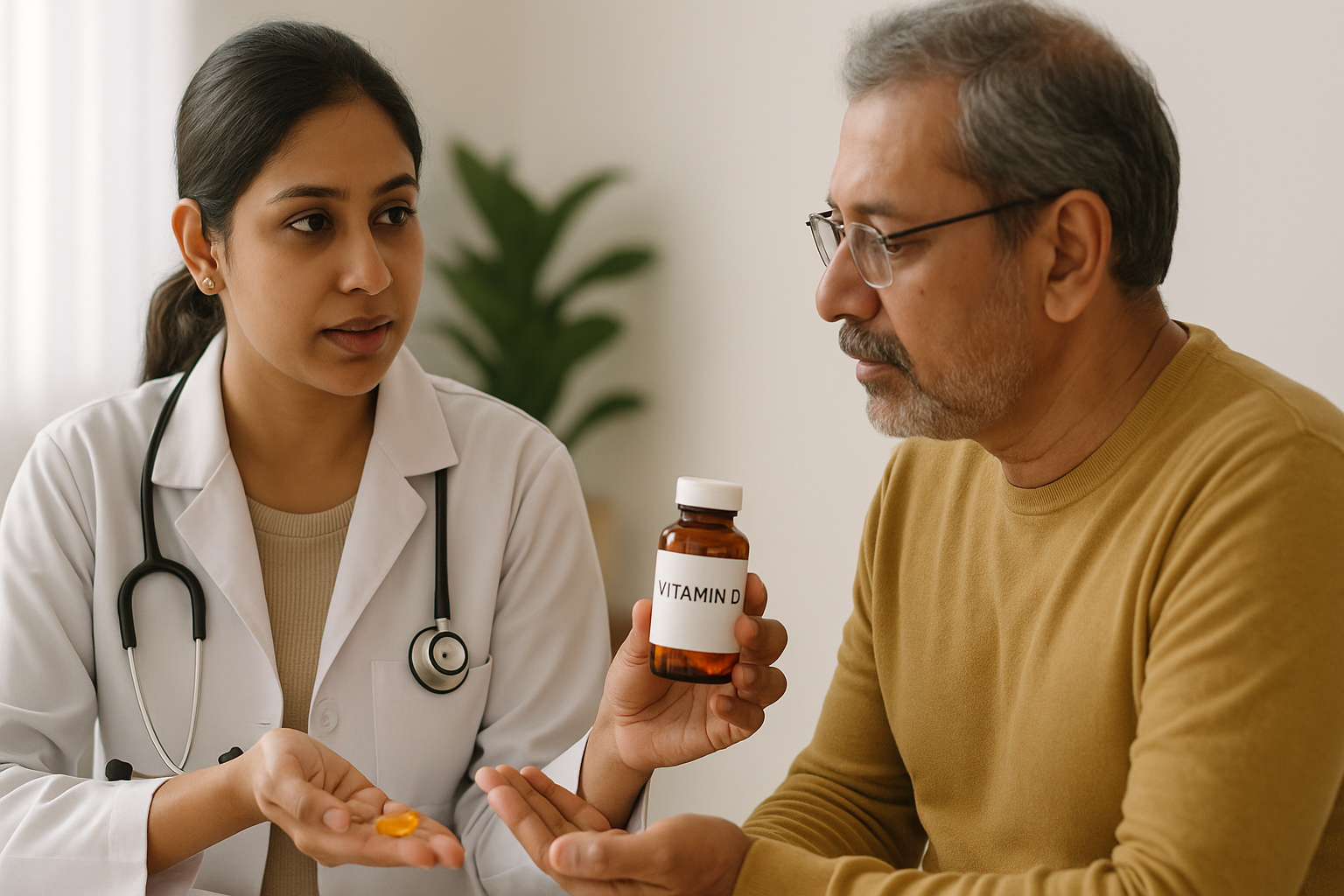The Ultimate Guide to Vitamin D: Why It’s Essential for Your Health

The Ultimate Guide to Vitamin D: Why It’s Essential for Your Health
Vitamin D is one of the most talked-about vitamins today—and for good reason. From supporting strong bones to boosting your immune system, vitamin D plays an important role in keeping you healthy. However, many people around the world, including in India, have low vitamin D levels without even realizing it. This article explains what vitamin D is, why it matters, how you can get enough of it, and precautions you need to take.
What Is Vitamin D?
Vitamin D is a unique vitamin because it acts more like a hormone inside the body. When you consume or produce vitamin D, it travels into your cells and “activates” to perform a variety of critical functions. Despite being called a vitamin, it behaves similarly to hormones by regulating important processes.
Where Does Vitamin D Come From?
Unlike most vitamins that come directly from food, vitamin D is primarily made in your skin. It starts with cholesterol in your skin, which when exposed to sunlight—specifically the ultraviolet B (UVB) rays—converts into vitamin D. This newly formed vitamin D then travels to your kidneys where it becomes “activated” so your body can use it effectively.
To produce enough vitamin D naturally, it’s recommended to expose about half of your body to sunlight for about 30 minutes a day. However, modern indoor lifestyles often limit our sun exposure, making vitamin D deficiency a widespread problem.
Why Is Vitamin D So Important?
- Bone Health: Vitamin D helps your body absorb calcium and phosphate—the minerals that act as the “cement” for building and maintaining sturdy bones. Without enough vitamin D, children can develop rickets, and adults may suffer from osteomalacia, which causes bone pain, weakness, and fractures.
- Immune System Support: It supports immune cells, reducing the risk and severity of infections, autoimmune diseases, and allergies. People with low vitamin D tend to experience more severe autoimmune conditions like rheumatoid arthritis and lupus.
Who Is at Risk of Vitamin D Deficiency?
- People who spend most of their time indoors or use sunscreen constantly
- Individuals living in areas with limited sunlight exposure
- Those with darker skin, as more melanin reduces vitamin D production
- Patients with autoimmune diseases or those on steroid medications
- Older adults and people who have limited dietary sources of vitamin D
How to Safely Get Enough Vitamin D
- Sunlight: Aim for sun exposure on your arms, legs, and chest for 20–30 minutes daily. Midday sun provides the most effective UVB rays.
- Diet: Include fatty fish like salmon, egg yolks, and fortified foods like milk and cereals. Diet alone may not meet daily needs.
- Supplements: Common medical regimens include high doses (e.g., 60,000 IU weekly for 4–6 weeks), then monthly maintenance. Daily recommended intake is around 400–600 IU depending on age and health.
Why You Should Consult a Doctor Before Taking Vitamin D Supplements
Vitamin D is fat-soluble, so excess amounts can accumulate in the body and cause toxicity. Symptoms include nausea, weakness, kidney problems, and calcium imbalance.
Self-medicating without testing blood levels or consulting a doctor can lead to serious side effects. A doctor can prescribe the correct dose and monitor your levels safely.
Vitamin D and Autoimmune Diseases: An Emerging Link
Vitamin D deficiency is common in people with autoimmune conditions like rheumatoid arthritis and lupus. It may worsen the severity of these conditions.
Supplementing vitamin D may support immune function and reduce autoimmune flare-ups. When combined with calcium, it helps counteract bone loss caused by long-term steroid use.
Final Thoughts: Prioritize Your Vitamin D Levels
Vitamin D is essential for your bones, immune system, and overall health. Modern lifestyles often make it hard to get enough from sunlight alone.
Speak to your doctor if you experience bone pain, frequent infections, or have an autoimmune condition. Testing and maintaining optimal vitamin D levels is a simple but powerful step toward better health.
Book a consultation today with our specialists to discuss your vitamin D needs.


